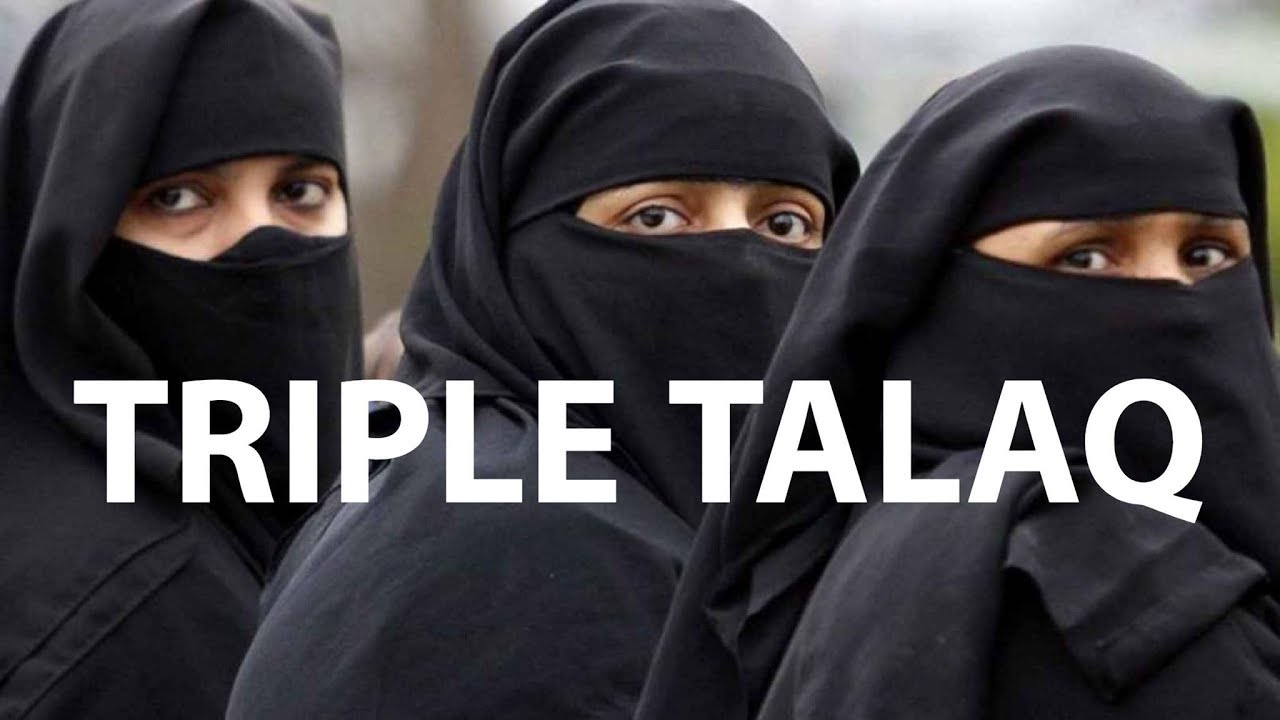
- Triple talaq (often known as talaq ul bidat/talaq-e-biddah or talaq-e-mughallazah) is an irrevocable Islamic divorce practiced in India until it was ruled unlawful in the country. It allowed a Muslim man to legally divorce his wife three times by saying talaq (Arabic for divorce). It also allowed the Muslim community to commence divorce proceedings in various ways, including verbal, written, and even technological forms.
Background Of Triple Talaq
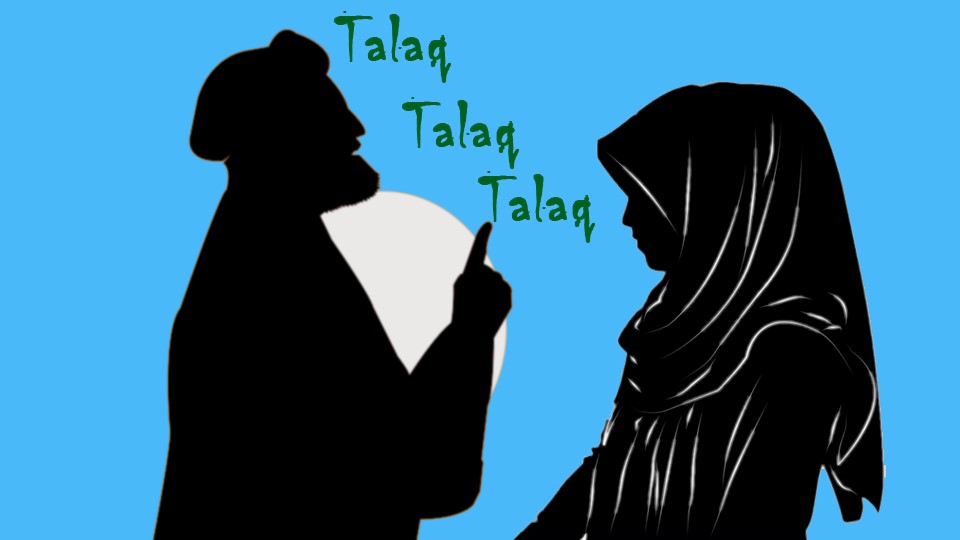
Talaq-e-bit is a practice that allows a man to divorce his wife by saying ‘talaq’ three times in one sitting without his wife’s agreement. Nikah Halala is a practice in which a divorced woman who wishes to remarry her spouse must marry and secure a divorce from a second husband before remarrying her first husband. On the other hand, Polygamy is a tradition that permits Muslim males to have more than one wife.
Upon February 16, 2017, the Court issued a formal request response from Shayara Bano, the Union of India, several women’s rights organisations, and the All India Muslim Personal Law Board (AIMPLB) on the issues talaq-e-bidat, nikah-halala, and polygamy. Ms Bano’s claim that these practises are unlawful was endorsed by the Union of India and women’s rights groups such as Bebaak Collective and Bhartiya Muslim Mahila Andolan (BMMA). The AIMPLB has maintained that uncodified Muslim personal law is not susceptible to constitutional judicial examination and that they are vital Islamic traditions protected by Article 25 of the Constitution.

The Supreme Court’s 5 Judge Bench issued its verdict in the Triple Talaq Case on August 22, 2017, ruling the practice unlawful by a 3:2 majority.
For 15 years, Shayara Bano was married to Rizwan Ahmed. In 2016, he divorced her with immediate triple talaq (talaq -e bidder). She petitioned the Supreme Court to declare three practices – talaq-e-bidder, polygamy, and nikah-halala – unlawful since they contradict Articles 14, 15, 21, and 25 of the Constitution.
On March 30, 2017, after approving Shayara Bano’s appeal, the Supreme Court convened a five-judge constitutional bench. The first hearing was held on May 11, 2017. The 5 Judge Bench issued its judgment in the Triple Talaq Case on August 22, 2017, pronouncing the practice unlawful by a 3:2 majority.
History
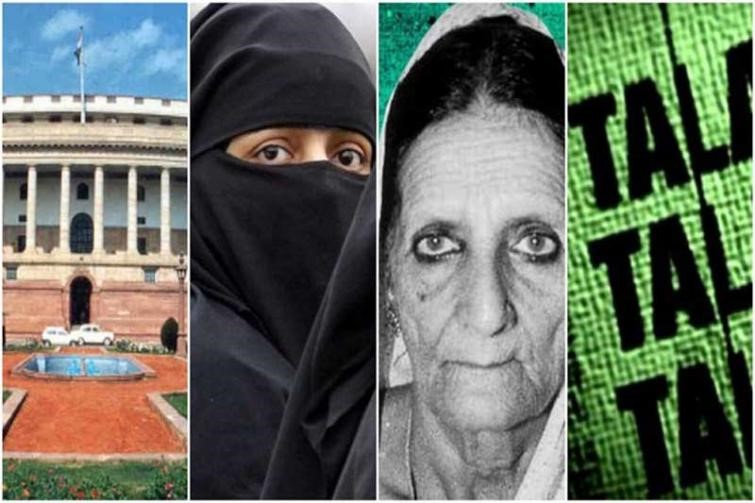
The concept of triple talaq dates back to the second century of the Islamic era. After two years in power, the second caliph, Umar, enacted triple divorce, which stated that no one would remarry after three divorces in a row.
The British government passed the Muslim Personal Law (Shariat) Act of 1937 governs Muslims, applying to all Muslims in India. The British government also approved the Dissolution of Muslim Marriage Act, 1939, to protect Muslim women’s rights. These acts contained detailed provisions about divorce, and Triple Talaq was one of them, so it was common among Indian Muslims to dissolve marriages through Triple Talaq(8). Muslim marriages in India are considered private affairs unless the couple decides to register their marriage under the Special Marriage Act of 1954.
Due to these historical causes, other nations’ governments limit the husband’s unilateral power to divorce. The ban of triple talaq, for example, has not been implemented in India.
On July 30, 2019, the Indian Parliament enacted the Triple Talaq Bill, also known as Protection of Rights on Muslim Marriage Bill, 2019, making immediate Triple Talaq a criminal offense.
Judgement
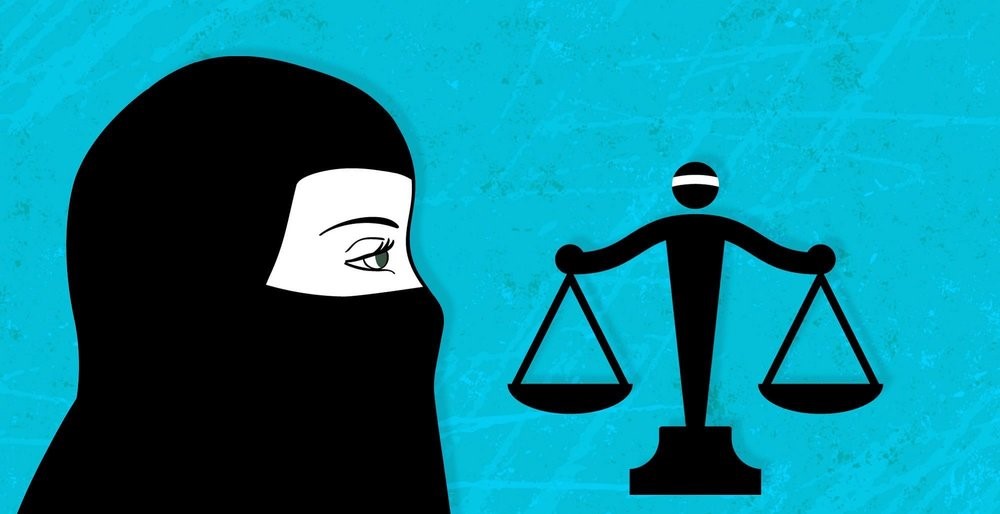
Shayara Bano v. as Union of India & Others was the name of the case. The Court that heard the contentious triple talaq case in 2017 was made up of people of all faiths. Chief Justice JS Khehar, a Sikh and Justices Kurian Joseph and Christian, RF Nariman a Parsi, UU Lalit a Hindu, and Abdul Nazeer are among the five justices a Muslim.
The Supreme Court considered whether Triple Talaq is protected by the constitution, namely Article 25(1), which ensures all fundamental rights to profess, practice, and promote religion. The Court sought to determine whether triple talaq is an essential aspect of Islamic doctrine and practice.
Although two judges supported the legitimacy of immediate triple talaq in a 397-page verdict (talaq-e-bidder), the three other judges agreed that it was unlawful, and a 3–2 vote barred the practice, Majority. One judge claimed that quick triple talaq was against Islamic law. The Court ordered the federal government to provide a statement, legislation governing marriage and divorce in the Muslim community within six months. The Court ruled that there would be an injunction against husbands who pronounced quick triple talaq on their wives until the government enacted legislation prohibiting instant triple talaq.
Legalisation
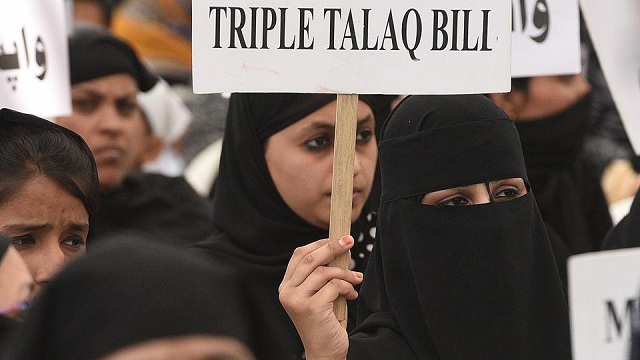
After 100 incidents of quick triple talaq in the nation after the Supreme Court’s decision in August 2017, the government drafted a law and submitted it in Parliament. The Muslim Women (Protection of Rights on Marriage) Bill, 2017, was approved by the Lok Sabha on December 28, 2017. The measure was intended to render immediate triple talaq (talaq-e-biddah) in any form as spoken, in writing, or by technological methods including as email, SMS, and WhatsApp — illegal and invalid, with the husband facing up to three years in prison.
MPs from the RJD, AIMIM, BJD, AIADMK, and AIML rejected the Bill, calling it arbitrary and flawed, while Congress backed the Bill introduced in the Lok Sabha by Law Minister Ravi Shankar Prasad. In the Lok Sabha, 19 changes were proposed, but they were all rejected.
The government presented The Muslim Women (Protection of Rights on Marriage) Bill, 2017, in December 2017, citing the Supreme Court verdict and incidents of triple talaq in India. The law suggested making triple talaq illegal and invalid in any form, whether spoken, written, or transmitted electronically.
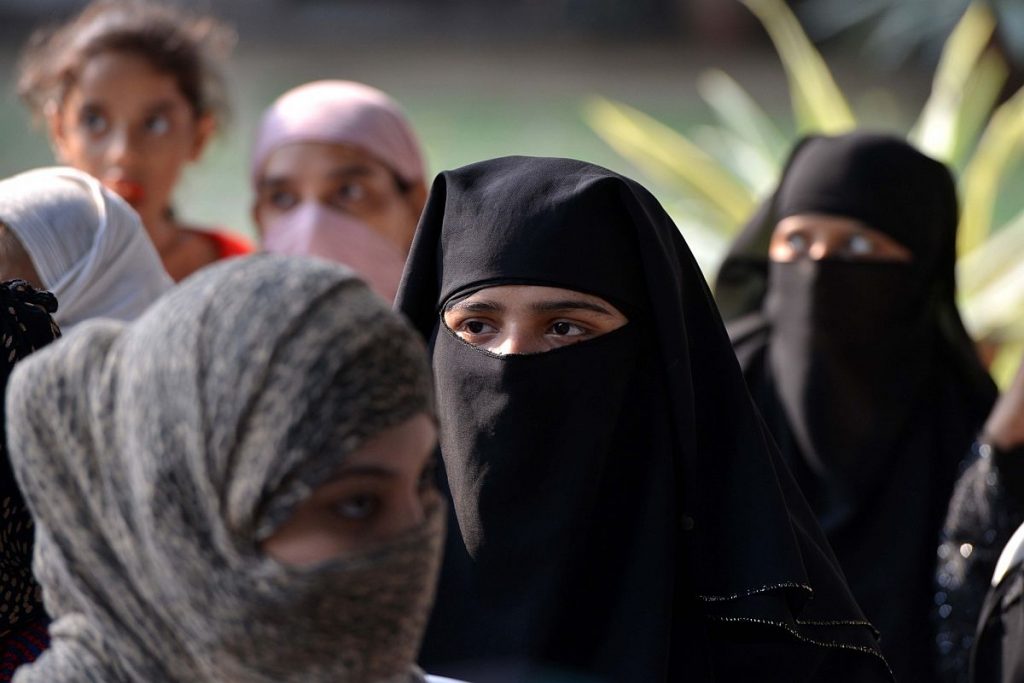
The punishment for breaking the legislation was planned to be up to three years in prison for the spouse who performed triple talaq. The law was passed by the Lok Sabha, India’s lower house, on the same day but was stopped by resistance in the Rajya Sabha, the upper house.
The minority viewpoint urged that the Parliament examine appropriate legislation controlling triple talaq in the Muslim community. In July 2019, the Bill was reintroduced and passed by both the Lok Sabha and the Rajya Sabha. As a result, the law obtained the President of India’s ascent. The statute also allows a woman who has been wronged to seek support for her dependent children. It was later declared legislation in the same month. The acts will take effect retroactively on September 19, 2018.
Implementation Of Triple Talaq
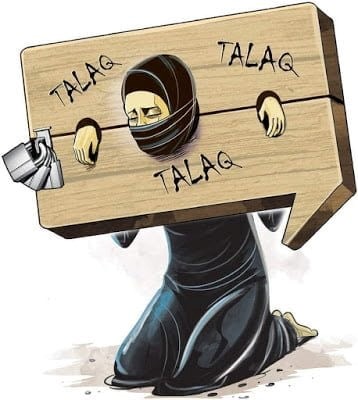
In essence, this Act made triple talaq, i.e. talaq-e-bidder or any other type of talaq, illegal. Any Muslim husband who issues such a talaq to his wife faces a three-year prison sentence as well as a monetary fine.
Only the married Muslim woman to whom the talaq is pronounced, or any individual connected to her by blood or marriage, can commit the offence under Islamic legislation. This is to keep outsiders from abusing the system. Once only after hearing the victim woman and on sufficient grounds can bail be granted under the Act.
The wife and her dependent children are entitled to a subsistence stipend as established by the magistrate and the wife’s entitlement to custody of her younger children. Significantly, the Act’s criminal offence has been made compoundable, but only on the Muslim woman’s request and the magistrate’s permission on proper terms, which the court may choose.
The wife and her dependent children are entitled to a subsistence stipend as established by the magistrate and the wife’s entitlement to custody of her younger children. Significantly, the Act’s criminal offence has been made compoundable, but only on the Muslim woman’s request and the magistrate’s permission on proper terms, which the court may choose.
Opinion
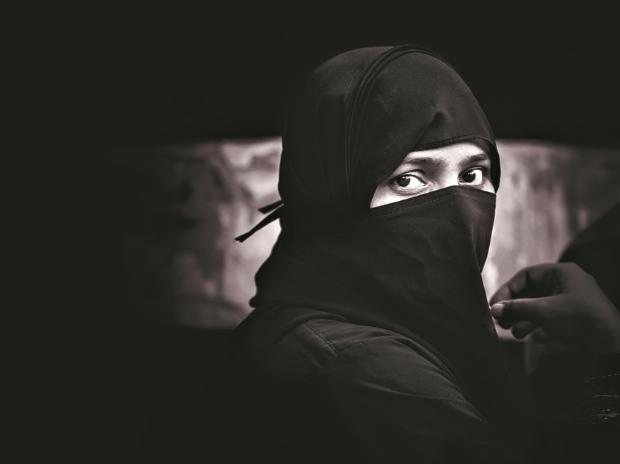
Union Law Minister Ravi Shankar Prasad sought bipartisan support for the Bill in Parliament as a champion of gender justice and a warrior for ‘Muslim sisters,’ without addressing the actual stakeholders, including the ‘Muslim sisters’ for whom he and his government are fighting.
The Bill declares all talaq declarations, whether written or electronic (by phone, text, or email), null and invalid. It makes the talaq declaration a cognizable and non-bailable offense. This practically implies that if a Muslim woman goes to the police station and complains that her husband has pronounced triple talaq on her, the officer has the authority to arrest the ‘accused’ spouse without a warrant. As if found guilty, then he has to face up to three years in prison and a fine.
The lady who has been sentenced to quick triple talaq is entitled to sustenance payment from her husband for herself and her children. The lady has the right to seek custody of her younger children as well.

Defeating all changes to the law, the Modi administration ignored all opposition parties such as the RJD, BJD, All India Muslim League, and AIMIM.
Congress, the main opposition, tactically but selectively backed the law, citing objections about only a handful of its provisions. The government has admitted on record that it did not consult any Muslim organizations on the issue, nor did it consider the disagreements of Muslim women agitators who have been campaigning for/over gender equality for years and were the first to go to court to challenge the outdated practice on triple-talaq.
Standing before Parliament as a proponent of gender equality and a fighter for ‘Muslim sisters,’ Union Law Minister Ravi Shankar Prasad sought bipartisan support for the Bill without addressing the actual stakeholders, including the ‘Muslim sisters’ for whom he and his administration are fighting.
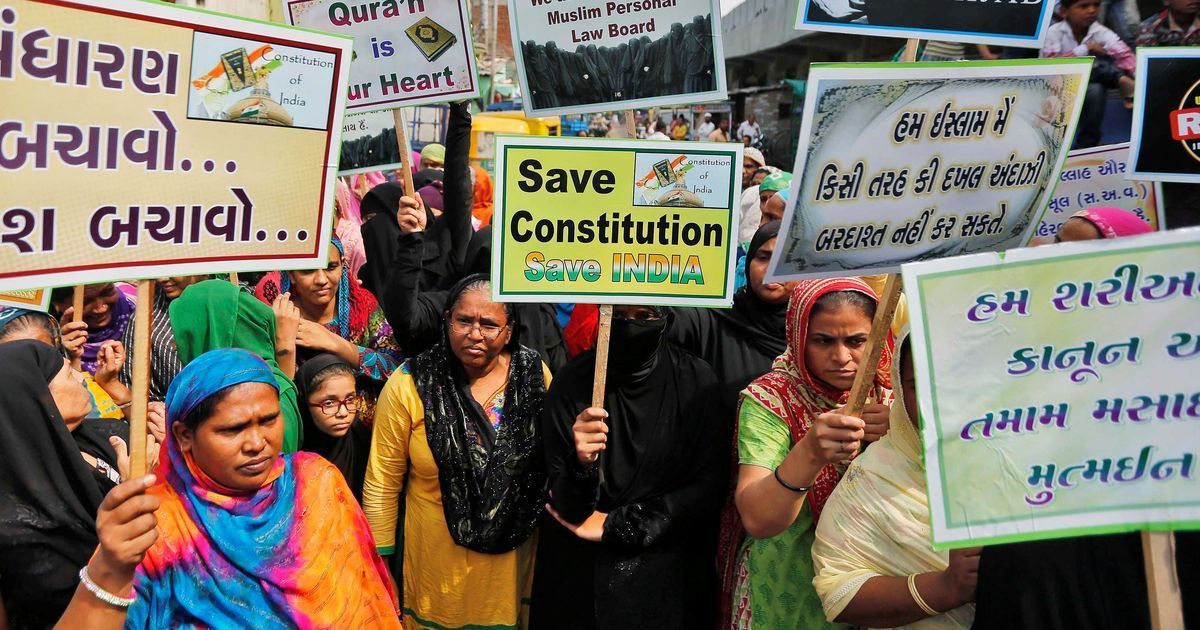
Leaving aside the majority verdict, the administration is following the minority interpretation of the Supreme Court decision that deemed triple talaq ‘unconstitutional’ and ‘invalid.’ The court did not request that the government draught legislation.
The main issue in this entire argument of criminalizing the simple utterance of triple talaq is that the man’s proclamation does not finally break the marriage, so why criminalize a crime that did not even occur?
The Supreme Court’s decision practically indicates that even after three talaq statements in a row, the marriage remains intact, and the man and woman remain husband and wife.
If the law is enacted, the Muslim lady will lose her husband and any chances of reconciliation, leaving her socially and financially vulnerable. On the other side of gender equality, criminalizing Muslim males for a civil wrong is a clear violation of human rights. It is not necessary to be a legal expert to comprehend something as simple as this.
Moreover, much has been said about the lack of logic and rationality in drafting such legislation. It is equally crucial to consider the politics of enacting and criminalizing triple talaq.
Effect Of Triple Talaq In Society
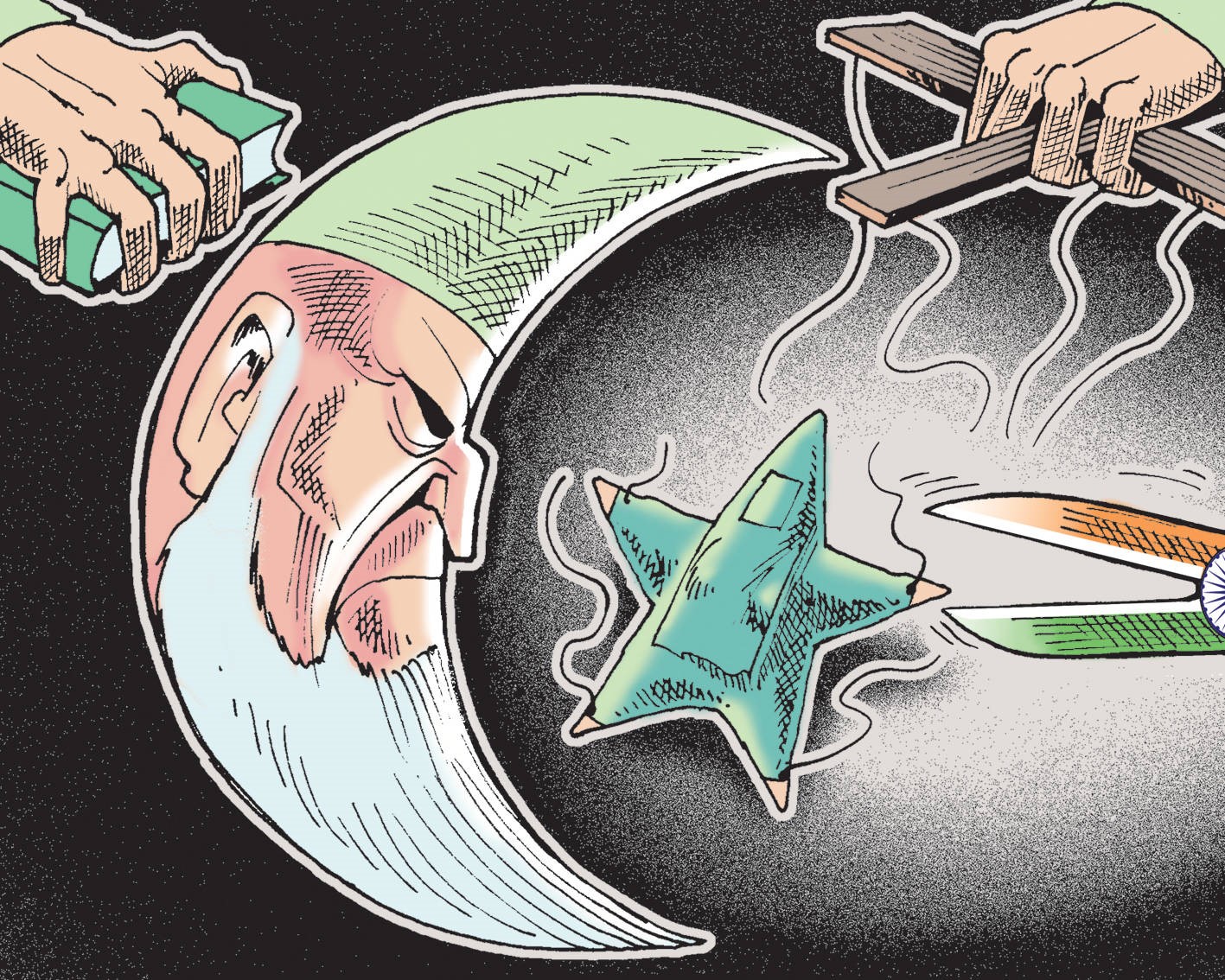
If Pakistan, Bangladesh, and many other Islamic nations can prohibit the practice of talaq-ul-bidat, why can’t India? Talaq-ul-bit, often known as triple talaq, is a Sharia law procedure that allows males to break marriage by simply saying the word ‘talaq’ to their wives three times in a row.
Many males engaging in triple talaq have made news, even using instant messaging apps like WhatsApp.
According to Census 2011 data, 13.5 per cent of all married Muslim women are married before the age of 15, and forty-nine per cent were married between the ages of 14 and 19. Marriage at such a young age, in most situations, reduces one’s chances of obtaining an education or becoming financially secure.
According to a Bharatiya Muslim Mahila Andolan poll, 95% of divorced women got no maintenance from their spouses. In many circumstances, women cannot take on the role of earner and childcare provider right once. One recent example of a pregnant lady being evicted from her home for refusing an abortion added fuel to the fire.
Oral divorce is the simplest and most popular way for Muslims to divorce. Sixty-nine per cent of all divorced women divorced orally, and this has recently occurred over text and email as well. Two ladies in Hyderabad were recently divorced over WhatsApp by their separate husbands.
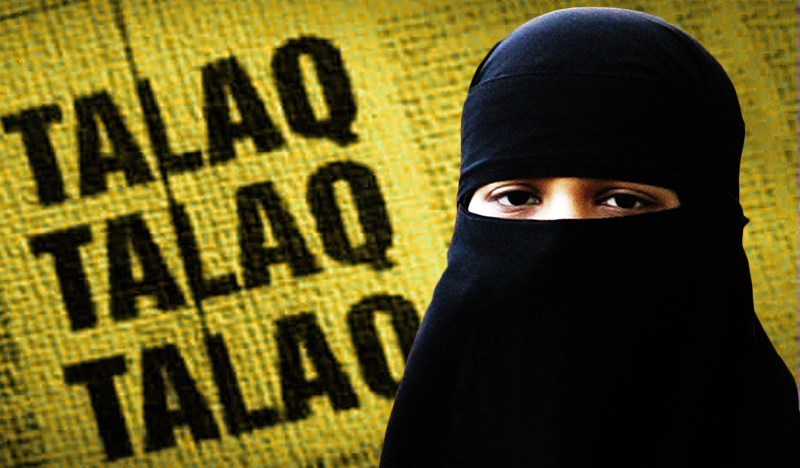
In 2015, an NRI guy from Kerala sent his wife a triple talaq message on WhatsApp from Dubai after only ten days of marriage. According to PTI, the young woman in her complaint stated that her husband had not even notified her if he had arrived in Dubai or where he was working.
The Supreme Court has ruled that a five-judge constitution bench would begin considering cases and determine the “constitutional legality” of the practice of triple talaq, nikah halala, and polygamy among Muslims.
Indeed, Chief Justice of India Justice JS Khehar has stated that the Supreme Court is willing to forego its summer vacation to hear the case of triple talaq since it is of “grave significance.” The disputes are about whether divorce by uttering ‘talaq’ three times is allowed or not, about women’s rights, and about whether the freedom to exercise religion – as defined by the Muslim Personal Law for Islam – takes precedence over fundamental liberties.
Though, the All India Muslim Personal Board (AIMPLB) requested the Supreme Court not to “interfere with its personal laws” because the concerns were outside the judiciary’s purview.
Custom Of Triple Talaq
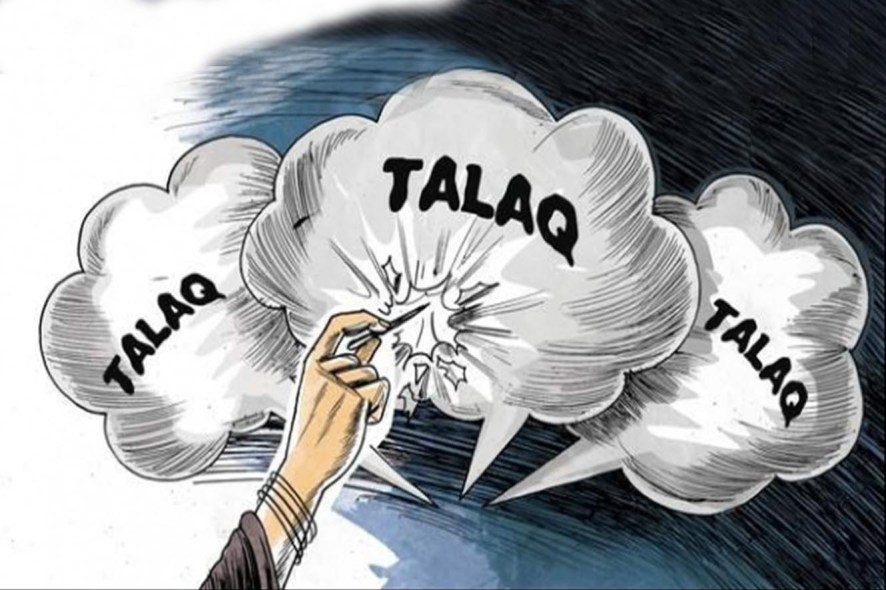
The practice of Muslim males divorcing their spouses by uttering the Arabic phrase for divorce three times has been outlawed in India. India, with over 180 million Muslims, was one of the last countries where this was permitted.
In India, a Muslim man could pronounce the Arabic word for divorce three times to divorce his wife. Not any longer and the practice is now punishable by up to three years in jail. Lauren Frayer of NPR is reporting from Mumbai on this topic.
The Supreme Court’s decision practically indicates that even if talaq is issued three times in a row, the marriage remains intact, and the man and woman remain husband and wife.
If the rule is enacted, it will strip a Muslim woman of her spouse and eliminate any chances of reconciliation, leaving her socially and financially vulnerable. Another side of the gender divide, criminalizing Muslim males for committing a civil offense, is a flagrant violation of their human rights. It is not necessary to be a legal expert to comprehend something as simple as this.
Although much has been discussed about the lack of logic and reasoning in enacting such legislation, it is also necessary to consider the politics of legislating and criminalizing triple talaq.
Top 13 Interesting Facts
Talaq ul bidat first developed in the second century when Omayyad rulers judged the Prophet’s recommended ordinances too stringent.
The Supreme Court ruled that triple talaq violates the core principles of Islam.
According to the Prophet’s sayings, giving talaq to a wife in a moment of passion or anger is severely forbidden.
A divorced Muslim woman may not remarry her divorced spouse unless she first marries another man, a ritual known as Nikah Halala.
The court stated that there would be an injunction on husbands pronouncing triple talaq on their wives until the government formulates a law governing Triple Talaq.
The Law Bill makes the talaq declaration a punishable offense by up to three years in jail and a fine.
A Muslim mother who has been proclaimed talaq has the right to seek custody of her young children.
Ghulam Nabi Azad, Leader of the Opposition, questioned the government’s motivation for proposing the Bill, calling it a “misnomer” and “politically driven.”
Several parties, including the AIMIM, JD(U), and Congress, have expressed opposition to the measure in its current form.
The majority of opposition parties have stated that Bill’s criminality section might be utilized by police and other authorities to target Muslims specifically.
The Supreme Court outlawed the contentious practice of triple talaq in 2017.
Muslim males do not stay unmarried for long and remarry much faster than Muslim women.
In India, Muslim women separated from their husbands is 7.64 for every 1,000 married women.
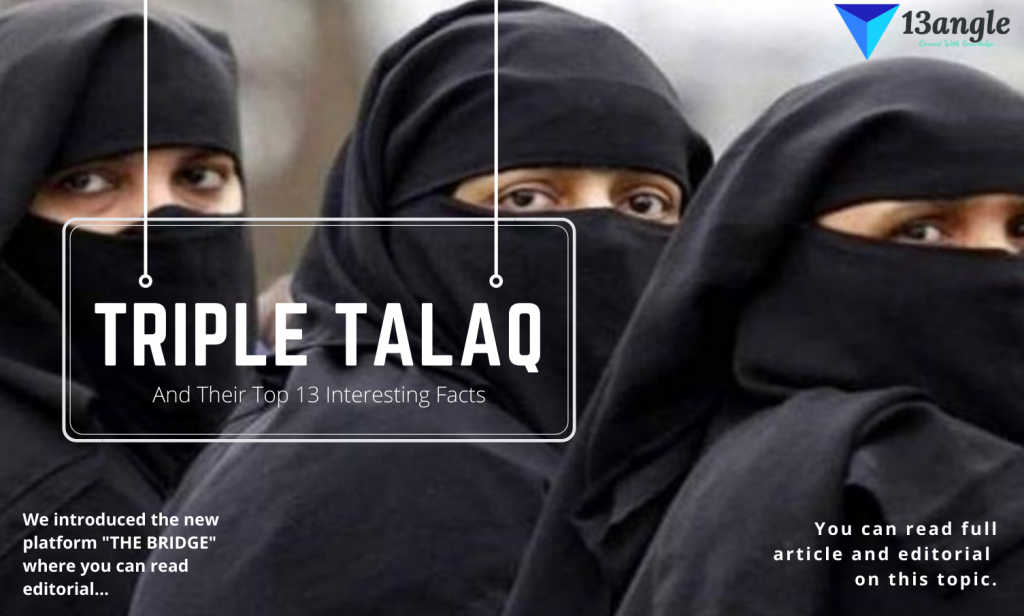
Click the button below to know our writer opinion:






